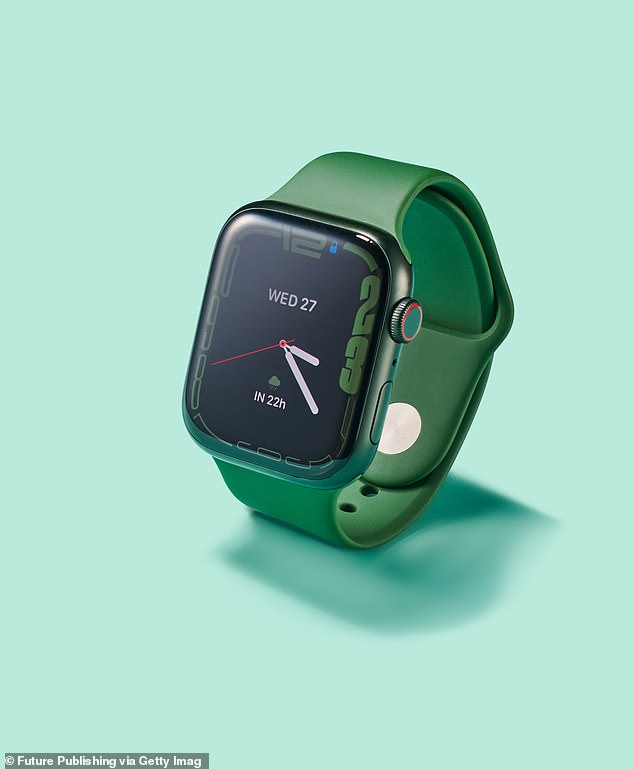Doctor, 43, reveals how Apple Watch saved her life by alerting her to terrifying health crisis
A Philadelphia doctor says her Apple Watch saved her life after the device warned her she had a dangerous heart condition.
Erica Harris, 43, was stuck in traffic in November 2021 when she got a notification on her watch that her heart was beating too fast and irregularly. This can indicate a dangerous condition: rapid atrial fibrillation (Afib).
The emergency room doctor used her hands to press on her chest to increase the pressure on her heart, which caused her organ to return to its normal rhythm, she said. The Philadelphia Inquirer.
“It lasted almost five minutes, and that’s the point where you’re at risk for a stroke,” she said. At that point, she had no physical evidence that her heart was beating irregularly.
The doctor was born with a congenital heart defect, which required her to undergo two surgeries. After receiving the warning, she contacted her cardiologist, who prescribed her blood-thinning medication in case she had another atrial fibrillation attack, the outlet reported.
While smartwatches aren’t always 100 percent accurate and aren’t recommended over a doctor’s analysis, they have notified medical events to patients who otherwise would have been unaware of them.
Erica Harris, 43, was stuck in traffic in November 2021 when she got an alert on her watch that her heart was beating too fast and irregularly — indicating a potentially dangerous condition called rapid atrial fibrillation

Her watch gave her an urgent warning and she was able to press her hands to her chest to help her heart return to a normal rhythm. Harris, who was born with a heart condition, then went to her cardiologist and was prescribed blood thinners in case the incident happened again
According to a US government survey, up to 30 percent of American adults wear a smartwatch with a health tracking feature. Care evolution.
Nora Bursztein, 74, was one of those patients who, like Harris, received an urgent alert saying her heart rate was 48 beats per minute, when it is normally around 60 or 70.
“I ignored it and thought maybe it was the watch,” she told The Inquirer.
She got the message a few more times over the next few days, and after trying on her daughter’s watch and noticing her heart rate was lower, she began to wonder if something was wrong.
“I had surgery the next day,” she said. She was given a defibrillator and a pacemaker.
The American Heart Association recommends that users seek medical attention if they receive an alert from their watch. Patients can undergo an electrocardiogram (EKG) during a doctor’s visit to test the heart rhythm and determine if there is indeed a medical problem.
Still, smartwatches can be life-saving tools, identifying trends that patients might otherwise not have noticed.
An Apple Watch can alert the wearer to high and low heart rates and indicate if the heart rhythm is abnormal. It documents the data in the app, which can later be shown to a doctor for further evaluation.
But users should keep in mind that the watch is not a medical device and that external conditions can affect the collected data, making it inaccurate. According to The Inquirer, about 20 percent of the notifications are false.
“We need to make sure we have an accurate diagnosis,” cardiologist Stavros Stavrakis told The Inquirer.
A team of doctors found in November 2022 that resting heart-rate-related information collected by smartwatches was about 90 percent accurate. That number drops to 70 percent during activity.
Research has shown that it is very rare for people to receive an urgent alert from a smartwatch. Only one percent of people receive such an alert.
Only three to five percent of people over 65 receive a notification of an irregular heartbeat, Stavrakis said.
